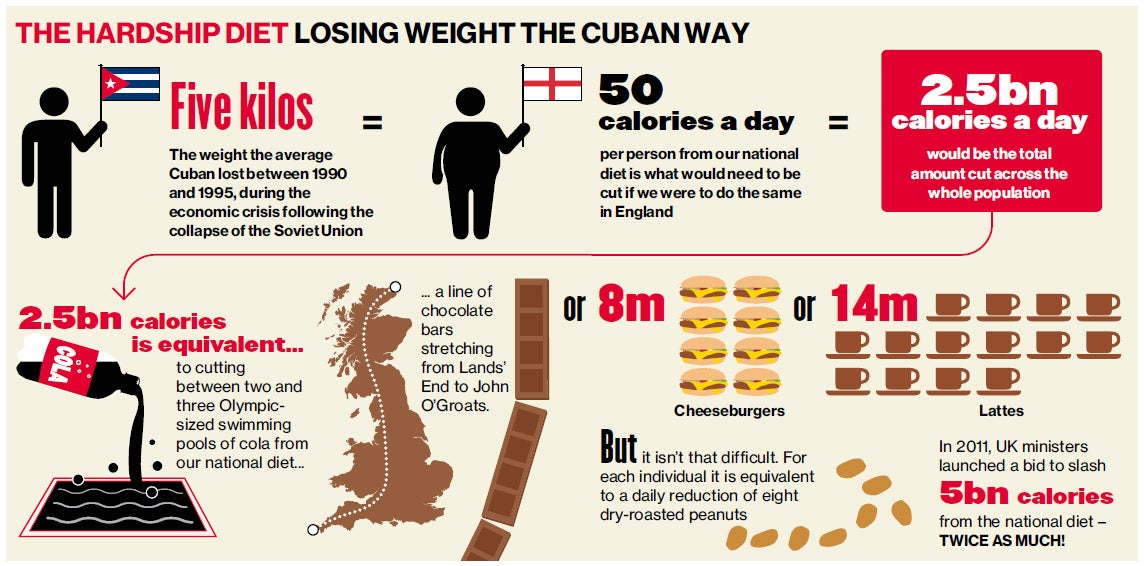The Cuban diet: eat less, exercise more - and preventable deaths are halved

A country whose citizens collectively succeeded in losing weight and increasing their level of physical activity saw their health improve and death rates plunge.
Click graphic to enlarge
In a unique natural experiment, researchers have observed how a nation that lost an average of 5kg per head over five years contributed to a halving of the death rate from diabetes and a one third reduction in deaths from heart disease.
The natural experiment occurred in Cuba which was plunged into crisis in the early 1990s following the collapse of the Soviet Union. Its experience demonstrates what could be achieved elsewhere if the same changes could be brought about, without an economic crisis.
Food and fuel were in short supply in Cuba from 1990 resulting in millions going hungry and having to abandon their vehicles and walk.
Cars and buses virtually disappeared from the roads as fuel supplies dried up, and farmers had to abandon motorised machines and work the fields manually. The Government issued one million bicycles to keep the population on the move.
Between 1990 and 1995, the average Cuban consumed fewer calories than they expended each day, leading to an average weight loss of 5kg.
Deaths from diabetes began to fall in 1996, five years after the start of the weight loss period, and remained low for six years. Deaths from heart disease and stroke which had been declining slowly since 1980 suddenly went into free fall from 1996.
By the late 1990s, however, Cuba was beginning to recover and as the economy grew so did waistlines. Levels of physical activity fell.
The consequences were seen in a surging prevalence of diabetes and rising rates of heart disease and stroke which, by the mid-2000s were back to their pre-crisis levels.
The international team of researchers from Spain, the US and Cuba, say that the "Cuban experience" from 1980 to 2010 demonstrates that within a relatively short period, modest weight loss in the whole population can have a profound effect.
Writing in the British Medical Journal, they say that although their findings are an extrapolation from one country's experience, they nonetheless provide "a notable illustration of the potential health benefits of reversing the global obesity epidemic."
The Cuban crisis was unusual in that it did not occur suddenly, as in a time of war, but developed slowly over a number of years, and was not accompanied by social breakdown. People continued to go to work and school and the Government maintained its strong tradition of public health and continued surveillance of medical trends.
In an accompanying editorial, Walter Willett, professor of nutrition at Harvard School of Public Health, says it is well known that changes in the food supply, such as the spread of fast food outlets, combined with reductions in physical activity, such as increased car use, leads to weight gain and the growth in diabetes and heart disease. But it is rare to see a reversal of the process.
Professor Willetts writes: "The current findings add powerful evidence that a reduction in overweight and obesity would have major population-wide benefits."
Join our commenting forum
Join thought-provoking conversations, follow other Independent readers and see their replies
Comments